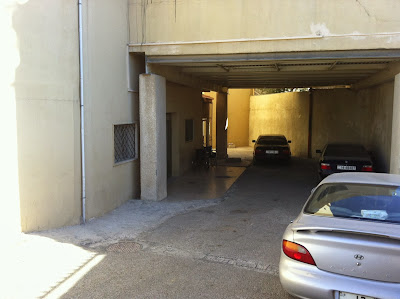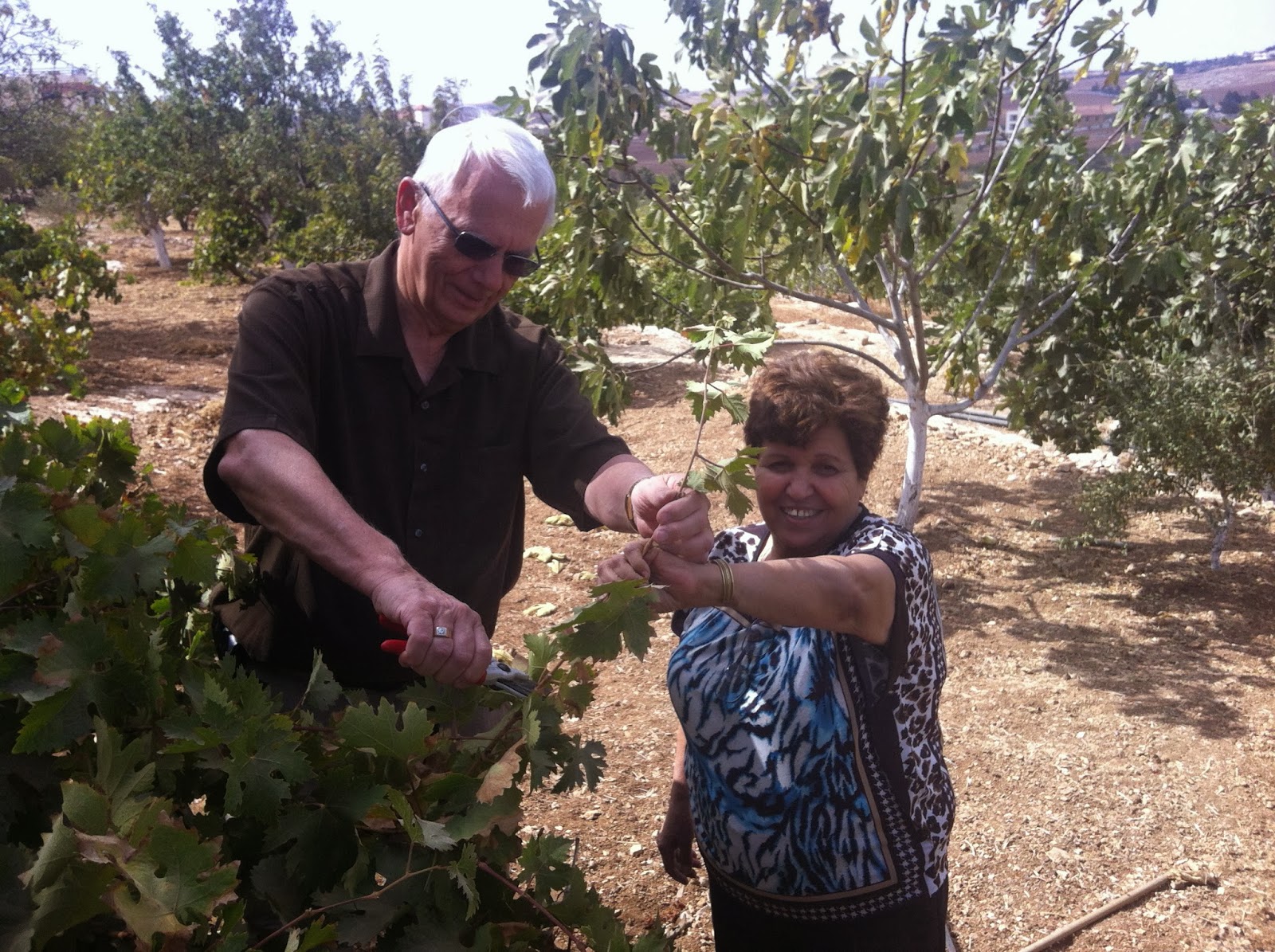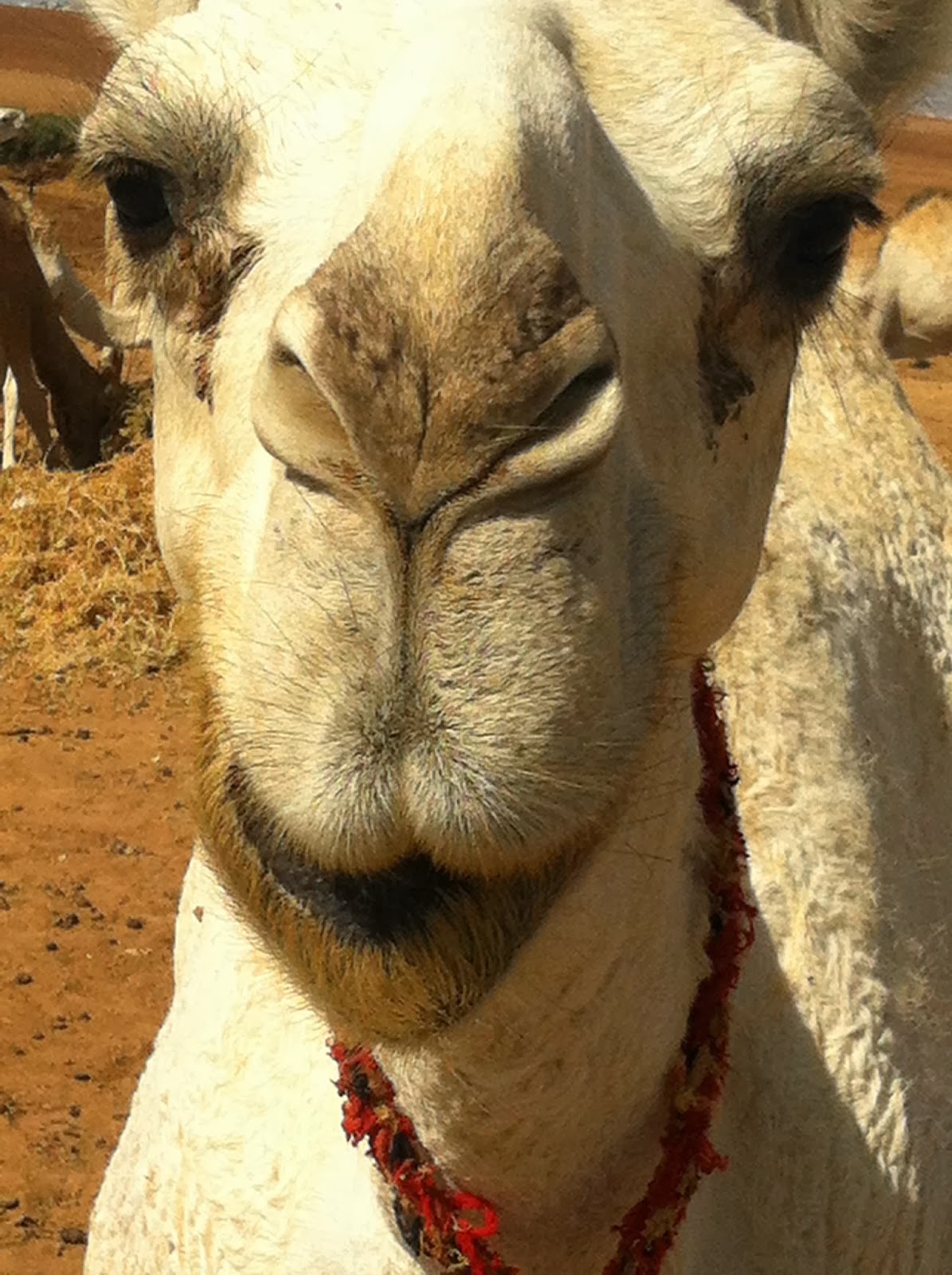Wed Oct 9-From Tom:
School Days, school days...
Here are some images from the campus, some before the students arrived and a few after. AUM is only in its 3rd year so things are all pretty new.... and in many cases not working yet. Ronna and I are in a new building with classes starting. Desks and furniture is still being installed, no internet access, phones just were put in, many doors don't work or are locked.
Overall the campus is very beautiful, like a citadel on the hill. It takes it's visual clues from the nearby cities that are white clusters of closely packed buildings at interesting angles. So visually they did an interesting job. Technically, they missed the boat. I'm having my class try to observe the things that were designed improperly and come up with solutions. So far my list is approaching 50 and growing fast. The emphasis is on appearance and don't worry about the detail.
It was 60% over budget and late. So I'm interested in how they managed.
 |
| Main walk between Science Buildings A and B |
There were about 400 students the first year, 800 the second and now between 1200 and 1500. It is gaining a good reputation. Most of the faculty are PhD and trained in the US, UK, Germany, Russia, Egypt, Lebanon, Italy and France. Very cosmopolitan. Most students are Jordanian but there are many from other countries. While it is owned by the Catholic Church, there is no evidence of the Catholic liturgy or iconography--which would be offensive to Muslims.
There is no apparent differentiation between Catholic, Orthodox or Muslim regarding how people are treated. Many young women wear the head covering or scarves, but many don't. Indeed most of the students are pretty cool looking and have tight, clothing. They actually are very beautiful for the most part. Most are very friendly and will go out of their way to help you. I have kids coming up and calling me Dr. Tom.
The faculty and students are all supposed to speak English. Ya right!! They default to Arabic when it's convenient. When they do speak English, I have a hard time understanding. I always have them spell their names. There are no Bob or Marys. As indicated in the Post Heading they are Abdullah, Fahed, Rawaa & Wajih. I took that from our class list. No one uses last names since that would involve about 8 names for each ( most include Mohammed somewhere). Their first is distinctive enough, and actually quite beautiful.
 |
| The Business Building B, The patch of grass is only one of two patches within 100 miles. |
 |
| First day of School. Note that some have head scarves and some don't. They don't make anything of it. |
 |
| Lots of retaining walls, stairs and ramps. Way too many in my opinion. Things don't connect but it's cool looking. |
 |
| View to the Science Building, outside of the Snack Bar. Usually very crowded. |
Many, if not most of the students and faculty smoke. It's forbidden inside buildings but some don't pay attention. It's also interesting that students are starting to wear coats and sweaters. When I took this it was close to 80 degrees. It gets down to 60 or so at night. ( taken 10/7/2013) Every day is beautiful blue skies with a breeze. Yesterday, there was a dust storm and the horizon was a big brown cloud, but it wasn't too severe.
The university is trying to emulate an American University, but they have a ways to go. I'm going to create a suggestion list that can be used by them for making changes. They love the quality of the American systems, but there needs to be a major change in thinking in every way.
For example, American are usually concerned about time, getting things done on time, showing up on time, being on schedule. That is the furthest thing from their mind. It's not a big deal to either not be on time or not show up.
Building management details are strange. There are major doors and entrances that have been locked since we got here. Not even panic hardware. I had to walk around the entire building to find a way to get in, even though I tried about 6 entries. They may have paper and soap in restrooms but many don't. Student gathering places and medical clinics are way out of the path and not given signage to find them. So they are not used.
I'm used to our western attention to detail and responsiveness. Here it's a much more relaxed attitude without the concern about making it correct.
The programs and courses are largely scientific and business. Many upper level chemistry and engineering programs. I'm impressed with the advanced teaching but a bit frustrated with the facility not being managed to match their aspirations.
Most of the students and faculty live in Amman, about a 45 minute drive. There is a shuttle bus system which is well used. There also are a lot of students and faculty driving Mercedes Benz, BMW, Audi and Lexus vehicles. Seems like there is a big spread between the wealthy upper class and the lower class. Not much in the middle.
The interest of the King and the President of AUM is to slow down the "brain drain" to America and Europe. They want the students to stay and build businesses in Jordan. Yet many of the students have the desire to leave. It's a big concern and challenge. I believe Jordan has a good future if the Syrian conflict doesn't spread. Many of the best families from Iraq, Palestine and Syria have relocated to Jordan because of it's relative security. So it should build on it.
I'm staying home today....I got my first sickness, a sinus infection. Good thing I brought some good meds with me. We now have 10 days off for the Jordanian equivalent of Thanksgiving mixed with Fast Sunday. They gather together as families, buy and slaughter sheep and give most of it to the poor. I told my class about how we do Fast Offerings and they thought it was a great idea. That's about as far as I can go in discussing faith.
We're planning a trip to Petra and Jerash soon but need our Residency Permits first. With permit cost is about $1.40; without permit it's over $100 each.












































